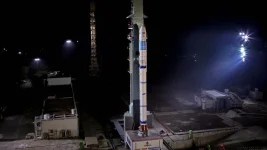- Views: 150
- Replies: 2
An ambitious Indian Air Force (IAF) plan to lease a fleet of Russian-made Tupolev Tu-160M "White Swan" strategic bombers is confronting significant obstacles, casting serious doubt on the future of a deal that would dramatically enhance India's long-range strike capabilities.
The proposed agreement faces headwinds from the ongoing war in Ukraine, which has strained Russia's defence production, and a complex geopolitical environment.
The proposal involved the lease of six to eight newly manufactured Tu-160M bombers, the world's heaviest and fastest supersonic strategic aircraft. This arrangement was linked to Russia's decision to reactivate its Tu-160M production line at the Kazan Aviation Plant.
For India, the acquisition was seen as a pivotal step toward establishing a dedicated strategic air command, providing a credible deterrent against regional adversaries.
A key feature of the prospective deal was the transfer of technology to enable the integration of India’s indigenous BrahMos supersonic cruise missile.
This would have created a unique and formidable weapons system, combining a premier Russian aerial platform with a world-class Indian missile, aligning perfectly with India's "Aatmanirbhar Bharat" (self-reliant India) initiative in the defence sector.
The Tu-160M, known by its NATO reporting name "Blackjack," boasts intercontinental reach with a range of over 12,000 kilometres and the capacity to carry a 40-ton payload of conventional or nuclear weapons.
Acquiring such an aircraft would fill a critical gap in the IAF's arsenal, which currently relies on shorter-range fighter-bombers for strike missions.
A lease model was considered a financially prudent approach to acquiring this high-value asset, with each aircraft estimated to cost upwards of $500 million if purchased outright.
However, the strategic appeal of the bomber is now overshadowed by severe practical and geopolitical challenges.
The primary roadblock is the protracted Russia-Ukraine war. The conflict has forced Moscow to divert immense resources to its own military efforts, significantly impacting production schedules at the Kazan plant.
Reports indicate that international sanctions have further complicated manufacturing by restricting Russia's access to essential high-tech components and electronics.
Furthermore, Russia's own strategic considerations have likely changed.
The Tu-160 forms a critical component of its nuclear triad, and recent Ukrainian drone attacks on Russian airbases, such as the "Spider’s Web" operation in June 2025 which damaged other bomber types, have underscored the aircraft's vital importance for Russia's national defence.
This reality makes Moscow increasingly hesitant to export such a crucial military asset, even to a close partner like India.
The stalled negotiations also reflect India's delicate geopolitical balancing act.
While maintaining historic defence ties with Russia, India has simultaneously deepened its strategic partnerships with the United States and other Western nations.
Proceeding with a high-profile defence deal with Moscow amid the current global situation could create diplomatic friction.
Consequently, the combination of Russia's wartime production constraints and the shifting geopolitical landscape has placed the future of this landmark acquisition in serious jeopardy.



